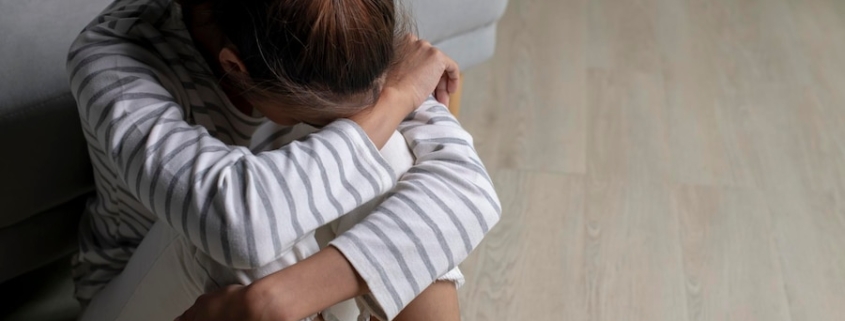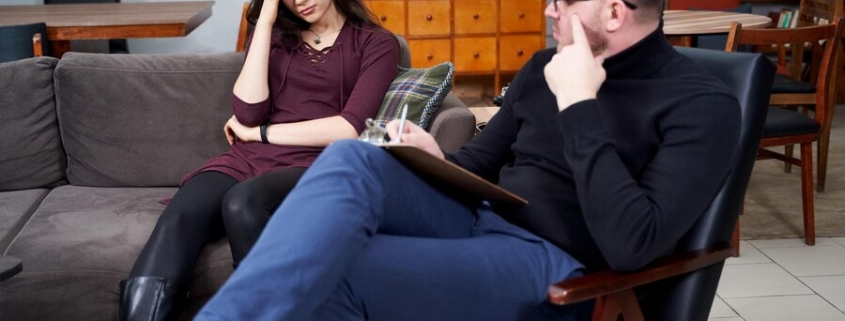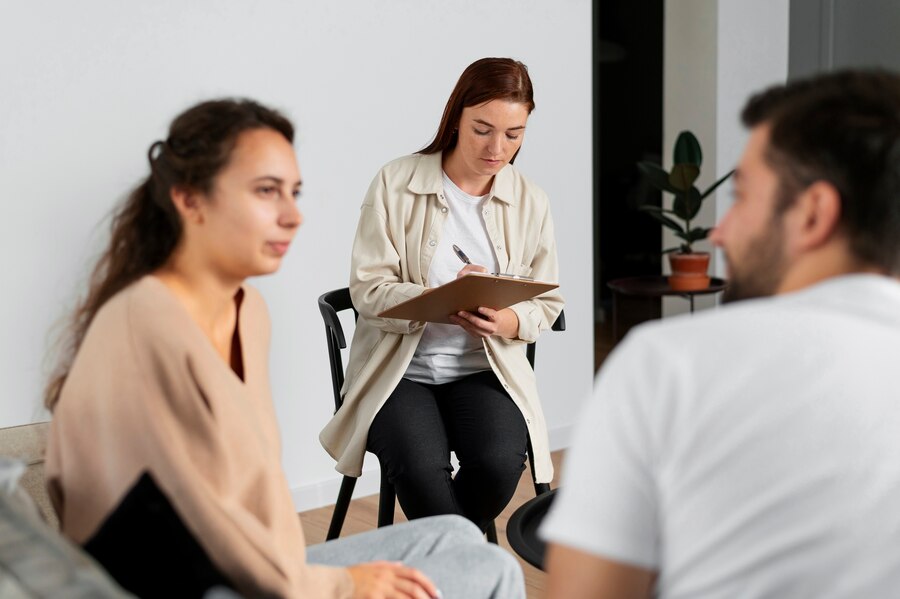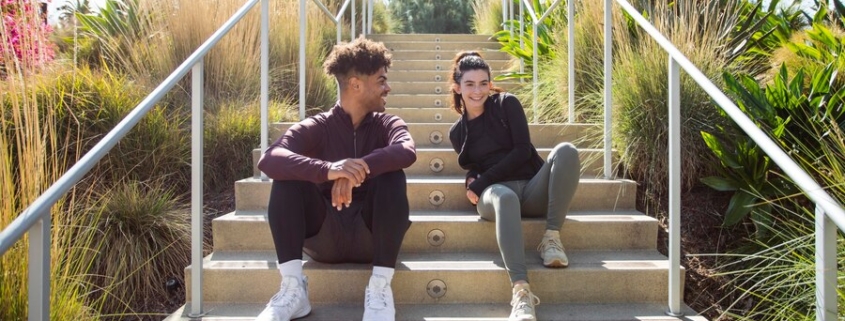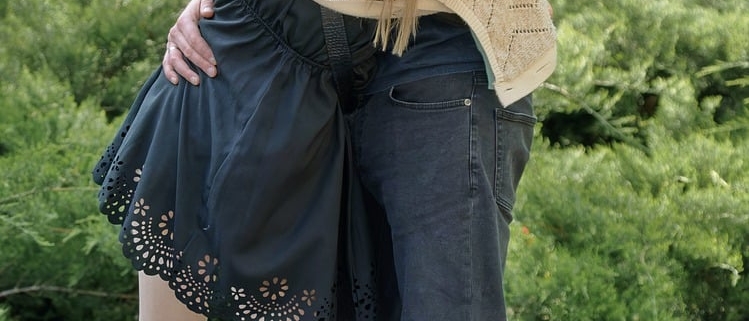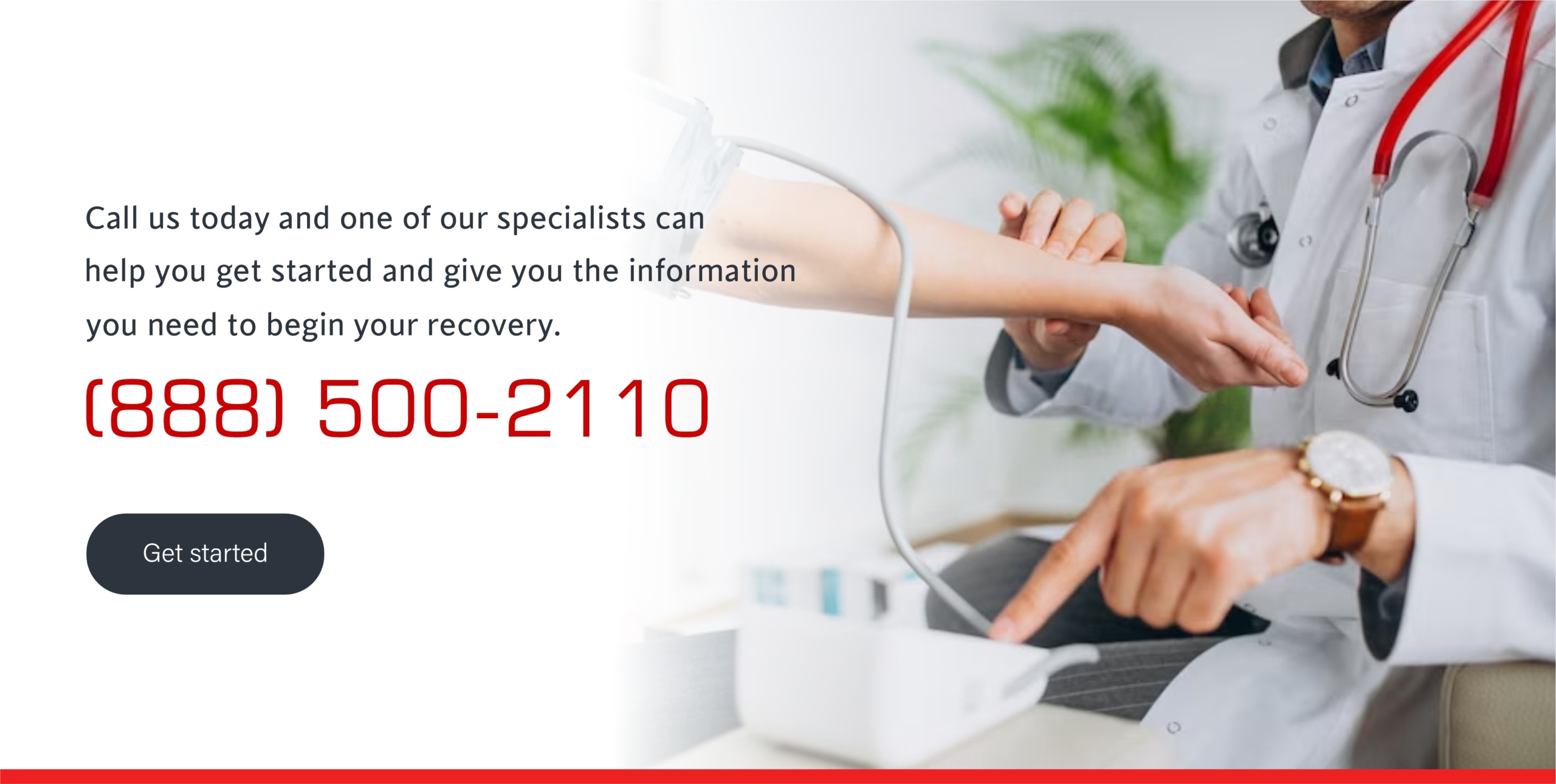Substance abuse remains one of the most pervasive and challenging public health issues in contemporary society. Its ramifications extend beyond the individual, deeply affecting families, communities, and even entire societal structures. In the context of intimate relationships, the complexities of substance abuse become further compounded. Couples who struggle with substance abuse face unique challenges that can exacerbate their addictions and hinder their paths to recovery. Addressing these challenges requires a nuanced understanding of the underlying causes and risk factors specific to couples.
Couples rehab offers a specialized approach to treatment, recognizing the intertwined nature of substance abuse within intimate relationships. Unlike traditional rehab programs that focus solely on the individual, couples rehab considers the relational dynamics that can both contribute to and sustain substance abuse. By focusing on these dynamics, couples rehab aims to provide a comprehensive treatment plan that not only addresses individual addiction but also fosters healthier relationship patterns.
This article delves into the multifaceted dimensions of substance abuse, with a particular focus on couples rehab. It will explore the various causes and risk factors associated with substance abuse, providing a thorough understanding of how these factors manifest within couples. By examining genetic predispositions, environmental influences, and psychological factors, we aim to shed light on the complexities of substance abuse. Additionally, the article will discuss the unique risk factors encountered in couples rehab, such as co-dependency, stress, relationship dynamics, and the impact of previous treatment failures.
Couples Rehab Services
Understanding Substance Abuse
Substance abuse is a significant public health concern that impacts individuals, families, and communities. To effectively address this issue, it is crucial to understand its various dimensions, including its definition, types, common substances abused, and prevalence.
A. Definition and Types of Substance Abuse
Substance abuse, also known as substance use disorder (SUD), refers to the harmful or hazardous use of psychoactive substances, including alcohol and illicit drugs. It is characterized by a pattern of using substances that leads to significant impairment or distress. This can manifest as an inability to control usage, a persistent desire to use the substance despite harmful consequences, and withdrawal symptoms when not using the substance.
There are several types of substance abuse, broadly categorized into:
Alcohol Abuse
Excessive drinking that leads to health problems, social issues, or both.
Prescription Drug Abuse
Misuse of medications such as opioids, sedatives, and stimulants.
Illicit Drug Abuse
Use of illegal drugs like heroin, cocaine, methamphetamine, and ecstasy.
Over-the-Counter Drug Abuse
Misuse of medications available without a prescription, such as cough syrups or motion sickness pills, often to achieve a psychoactive effect.
B. Common Substances Abused
Several substances are commonly abused, each with its own set of effects and potential for addiction. Some of the most frequently abused substances include:
Alcohol
Despite its legal status, alcohol is one of the most commonly abused substances. Chronic alcohol abuse can lead to liver disease, cardiovascular problems, and neurological damage.
Opioids
This category includes prescription painkillers like oxycodone and hydrocodone, as well as illicit drugs like heroin. Opioid abuse can result in severe respiratory depression, overdose, and death.
Stimulants
Drugs such as cocaine, methamphetamine, and prescription medications like Adderall and Ritalin fall under this category. They can lead to increased heart rate, high blood pressure, and severe psychological effects.
Cannabis
While increasingly legalized for medical and recreational use, cannabis can still be abused, leading to cognitive impairments and reduced motivation.
Hallucinogens
Substances like LSD, psilocybin mushrooms, and MDMA (ecstasy) alter perception and mood, potentially leading to dangerous behaviors and psychological distress.
C. Prevalence and Statistics
Understanding the scope of substance abuse requires examining its prevalence and demographic patterns:
Global Perspective
According to the World Health Organization (WHO), more than 35 million people worldwide suffer from drug use disorders. Alcohol is responsible for 3 million deaths annually, representing 5.3% of all deaths.
United States
The National Survey on Drug Use and Health (NSDUH) reports that in 2019, approximately 19.3 million American adults battled a substance use disorder. Alcohol is the most commonly abused substance, followed by marijuana and prescription pain relievers.
Demographic Variations
Substance abuse rates vary by age, gender, and socioeconomic status. Adolescents and young adults are particularly vulnerable, with peer pressure and experimentation often initiating substance use. Men are generally more likely to abuse substances than women, although the gap is narrowing.
Understanding substance abuse is a critical step in developing effective treatment and prevention strategies. By recognizing its definition, types, common substances, and prevalence, we can better address the complexities of substance use disorders and support those affected.
Causes of Substance Abuse
Understanding the causes of substance abuse is crucial for developing effective treatments and interventions. Substance abuse is a multifaceted issue, influenced by a combination of genetic, environmental, and psychological factors. Each of these elements can play a significant role in an individual’s propensity to engage in substance abuse and can also inform the therapeutic approaches used in couples rehab settings.
A. Genetic Factors
Research has shown that genetics can significantly influence the likelihood of substance abuse. Certain genetic predispositions can make individuals more susceptible to addiction, affecting how they metabolize substances or how their brains respond to drugs and alcohol. For instance, variations in genes related to dopamine regulation can impact the reward pathways in the brain, making some people more prone to seeking the euphoric effects of substances. Understanding these genetic factors can help in tailoring more personalized treatment plans that address these inherent vulnerabilities.
B. Environmental Influences
Environmental factors are another critical component in the development of substance abuse. These influences can range from the immediate family environment to broader social and cultural contexts. Individuals exposed to substance abuse in the family, for example, may normalize such behavior and be more likely to engage in it themselves. Additionally, peer pressure, socioeconomic status, and exposure to high-stress environments can also contribute to the likelihood of substance abuse. In couples rehab, recognizing these environmental triggers is essential for developing strategies to mitigate their impact, such as creating supportive and drug-free living situations.
C. Psychological Factors
Psychological factors often intertwine with genetic and environmental influences, further complicating the landscape of substance abuse. Conditions such as depression, anxiety, and trauma-related disorders can increase the risk of substance abuse as individuals may turn to drugs or alcohol as a form of self-medication. The interplay between mental health and substance abuse is well-documented, and treating one without addressing the other often leads to unsatisfactory outcomes. In couples rehab, a dual-diagnosis approach that simultaneously addresses both substance abuse and co-occurring psychological disorders can be more effective.
In summary, the causes of substance abuse are complex and multifaceted, involving an interplay of genetic, environmental, and psychological factors. Understanding these causes is vital for developing comprehensive treatment plans in couples rehab settings, ensuring that both partners receive the individualized care they need to overcome their challenges.
Risk Factors at Couples Rehab
When addressing substance abuse treatment within a couples rehab context, it is imperative to understand the unique risk factors that may arise. The interplay between partners who are both grappling with substance abuse presents distinct challenges that can complicate the recovery process. Here, we explore three primary risk factors: co-dependency, stress and relationship dynamics, and previous treatment failures.
A. Co-Dependency
Co-dependency represents a significant risk factor in couples rehab. This condition is characterized by a dysfunctional reliance on one another for emotional and psychological support, often at the expense of individual well-being. In the context of substance abuse, co-dependency can manifest in enabling behaviors, where one partner may unwittingly support the other’s addiction through denial, justification, or financial support for substance use. This mutual reinforcement of harmful behaviors can undermine treatment efforts, making it essential for rehab programs to address and disrupt these patterns. Therapies that focus on fostering healthy independence and communication skills can be crucial in mitigating the effects of co-dependency.
B. Stress and Relationship Dynamics
The dynamics of a relationship can significantly influence the success of substance abuse treatment. High levels of stress and conflict within a relationship can act as triggers for substance use, making it harder for both partners to maintain sobriety. Factors such as poor communication, unresolved conflicts, and differing levels of commitment to recovery can all exacerbate stress and hinder progress. Couples rehab programs must, therefore, incorporate strategies to manage stress and improve relationship dynamics. This can include couple’s therapy sessions that focus on conflict resolution, stress management techniques, and developing a unified approach to recovery.
C. Previous Treatment Failures
For couples who have attempted treatment before, previous failures can pose a daunting risk factor. The sense of discouragement and hopelessness that can accompany failed attempts at sobriety may diminish motivation and belief in the possibility of recovery. This can lead to a self-fulfilling prophecy where expectations of failure result in a lack of effort or engagement in the rehab process. Addressing this requires a nuanced approach that validates past struggles while instilling hope and confidence in the current treatment plan. Personalized treatment strategies that learn from past failures and tailor interventions to the couple’s unique needs can enhance the likelihood of success.
In conclusion, while couples rehab offers a valuable opportunity for mutual support and shared recovery, it is not without its challenges. Understanding and addressing the risk factors of co-dependency, stress and relationship dynamics, and previous treatment failures are crucial for creating a supportive and effective treatment environment. Programs that are aware of these complexities and are equipped to manage them can significantly improve outcomes for couples seeking to overcome substance abuse together.
Substance Abuse Treatment at Couples Rehab
Substance abuse is a multifaceted issue that demands a comprehensive understanding of its causes and risk factors, especially when considering treatment options like couples rehab. By delving into the genetic, environmental, and psychological factors that contribute to substance abuse, we can better appreciate the complexity of this condition. Couples rehab introduces unique challenges and risk factors, such as co-dependency, stress from relationship dynamics, and the weight of previous treatment failures. Recognizing these elements is crucial for developing effective treatment plans tailored to the needs of both individuals and their relationships.
Addressing substance abuse within the context of a relationship requires a nuanced approach that considers the interplay between individual and relational factors. Comprehensive treatment programs that incorporate therapy, support systems, and coping strategies can provide a more holistic path to recovery. Ultimately, a deeper understanding of the underlying causes and risk factors at couples rehab can enhance the likelihood of successful, sustained recovery, fostering healthier relationships and more resilient individuals.

FAQs
Understanding Substance Abuse in Couples
- What are the main causes of substance abuse in couples?
Answer: “Substance Abuse – Causes and Risk Factors” acknowledges various triggers. It could be self-medication for individual mental health issues, a history of trauma, or social pressures within the relationship itself.
- Can substance abuse be a symptom of deeper relationship problems?
Answer: Absolutely. Unresolved conflicts, communication breakdowns, or a lack of intimacy can lead one or both partners to use substances as a coping mechanism. Couples Rehab can help address these underlying issues.
- How can substance abuse negatively impact a relationship?
Answer: Addiction can create financial strain, emotional manipulation, and a breakdown in trust. Couples Rehab offers programs to rebuild communication and heal the relationship’s foundation.
Identifying Risk Factors
- What are some individual risk factors for substance abuse in a couple?
Answer: A history of addiction in one or both partners, individual mental health issues like depression or anxiety, or a lack of healthy coping skills are all concerning signs. Couples Rehab can assess your situation and guide you towards appropriate treatment.
- How can a partner’s substance abuse create a risky environment for the other?
Answer: Enabling behavior, where a partner protects the addicted partner from consequences, can worsen the problem. Couples Rehab promotes healthy boundaries and communication to break this cycle.
- Is there a link between domestic violence and substance abuse in couples?
Answer: Yes, domestic violence and substance abuse often co-occur. Couples Rehab offers safe spaces and resources to address both issues within the relationship.
Addressing Substance Abuse Together
- How can couples therapy help address substance abuse in a relationship?
Answer: Couples therapy at Couples Rehab can identify underlying issues contributing to substance abuse and equip you with communication tools to heal and rebuild trust.
- Does Couples Rehab offer individual therapy alongside couples therapy for substance abuse?
Answer: Yes. We understand individual healing is crucial. Couples Rehab offers individual therapy programs to address personal struggles alongside couples sessions focused on the relationship.
- What are the benefits of couples rehab for substance abuse?
Answer: Couples rehab provides a safe space for healing together. You’ll learn coping mechanisms, rebuild trust, and develop healthy communication skills to support each other’s recovery journey.
- What if only one partner wants to participate in treatment at Couples Rehab?
Answer: Couples Rehab offers support groups and resources for the supportive partner. We can also provide education and personalized guidance to motivate the resistant partner to consider treatment.

